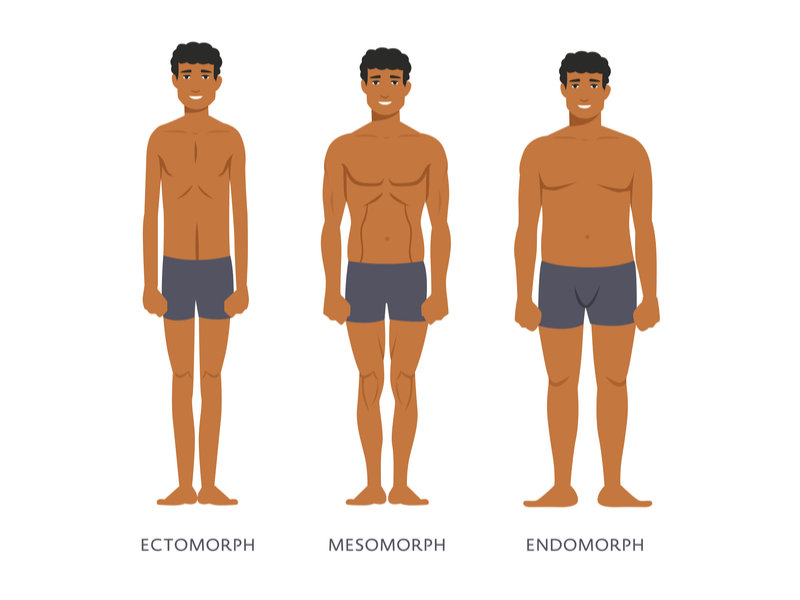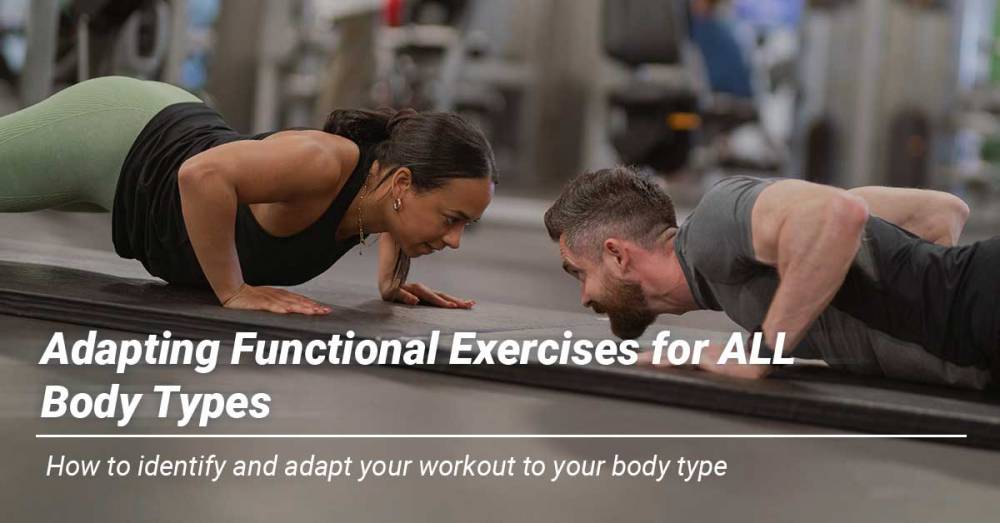When it comes to YOUR fitness, the one-size-fits-all approach is unlikely to generate the results you want to see. Every person is unique and our bodies come in all sorts of shapes, sizes and capabilities. This is why it is essential to adapt exercises to accommodate different body types. Functional exercises use everyday movements, making them ideal to showcase how to adapt your workouts to YOUR unique body.
 Understanding Body Types
Understanding Body TypesBefore figuring out the best adaptation for you, we need to understand different body types, namely the 3 major body types: ectomorph, mesomorph, and endomorph.
- Ectomorphs - Lean, tall and fine-boned
- Mesomorphs - Muscular, athletic and square
- Endomorphs - Higher body fat, rounded, soft
Adapting Functional FitnessEctomorphs: These individuals are naturally lean so they tend to struggle to gain muscle mass. For this group, tailoring functional exercises to focus on muscle-building and making sure to add heavier weights with lower reps will help them to see results. For example; instead of doing a bodyweight squat, try a barbell or loaded barbell squat to engage the back, abdominal, leg and shoulder muscles.
Mesomorphs: Having naturally athletic frames, people with mesomorph body types do well with a combination of strength and cardio exercises. Plyometrics such as box jumps can help mesomorphs increase explosive power while getting strong and keeping the heart healthy too.
Endomorphs: People with this body type benefit from cardio-emphasized exercises. Breaking up functional exercises such as burpees into a circuit can boost mesomorphs' metabolism as well as burn calories effectively.
Consider LimitationsNot all bodies move the same way which means flexibility levels vary from person to person. Making sure to add stretching exercises like Yoga to your routine can help to improve mobility, flexibility and range of motion. Plus, proper rest and recovery will help to prevent injury over time.
Protect Your JointsLike our bodies overall, joints are all different but there's no denying how important their role is in comfort and performance when exercising. People with a history of joint issues should opt for low-impact variations of functional exercises that avoid jumping such as lunges and squats.
The amazing thing about functional exercises is that you WILL use them every day. Making sure you are optimising your daily movements while being gentle and listening to your body will make even the newest of newbies feel more confident in everyday life and at the gym.
If you're not sure where to start or how to adapt exercises to your body type, you can speak to one of our highly skilled
Personal Trainers - they'll be more than happy to help!
![]()
![]()
![]() blog
blog![]()
![]()
![]() blog
blog
